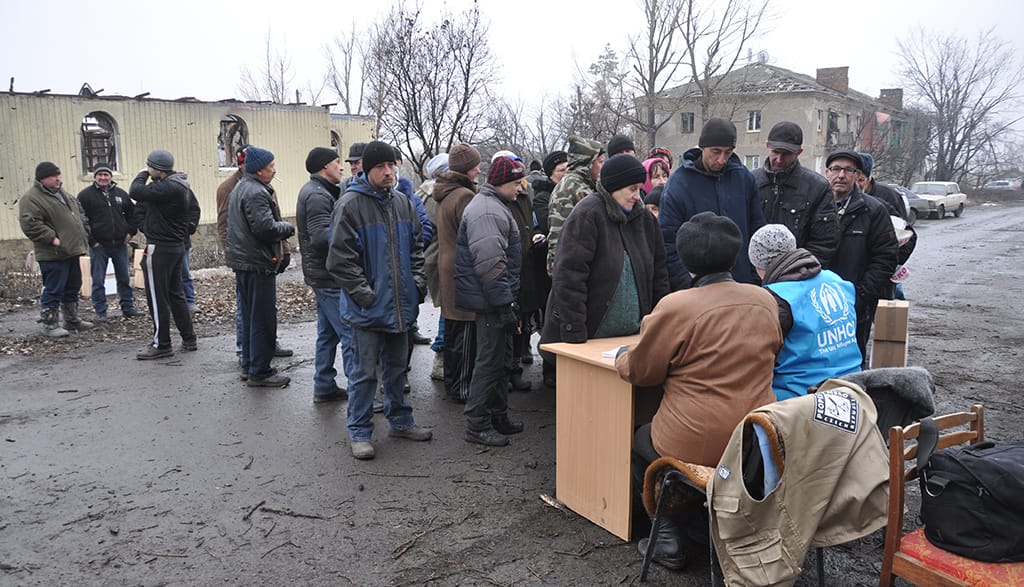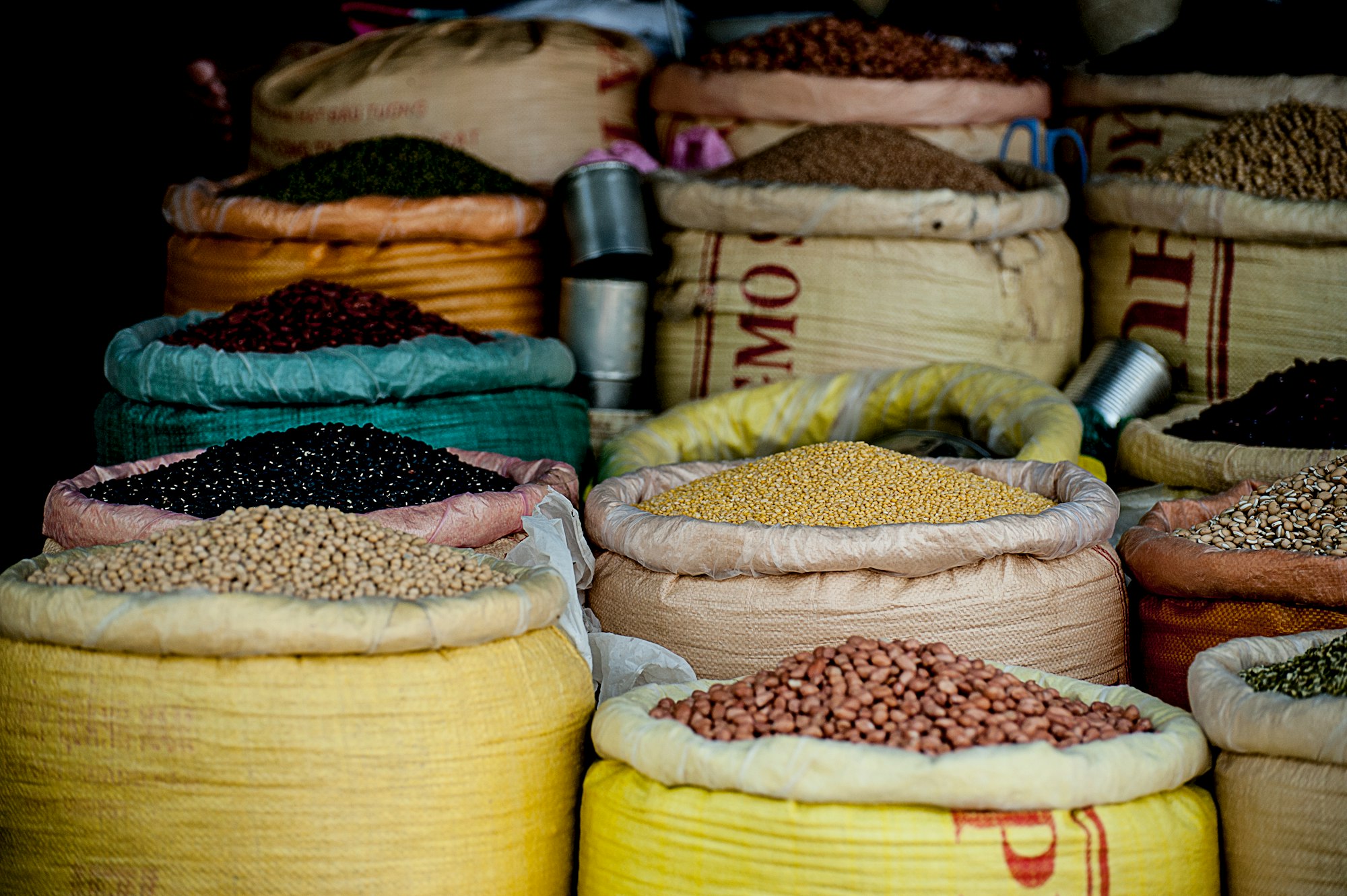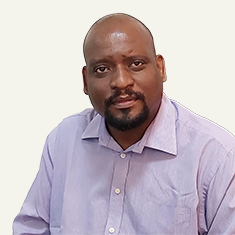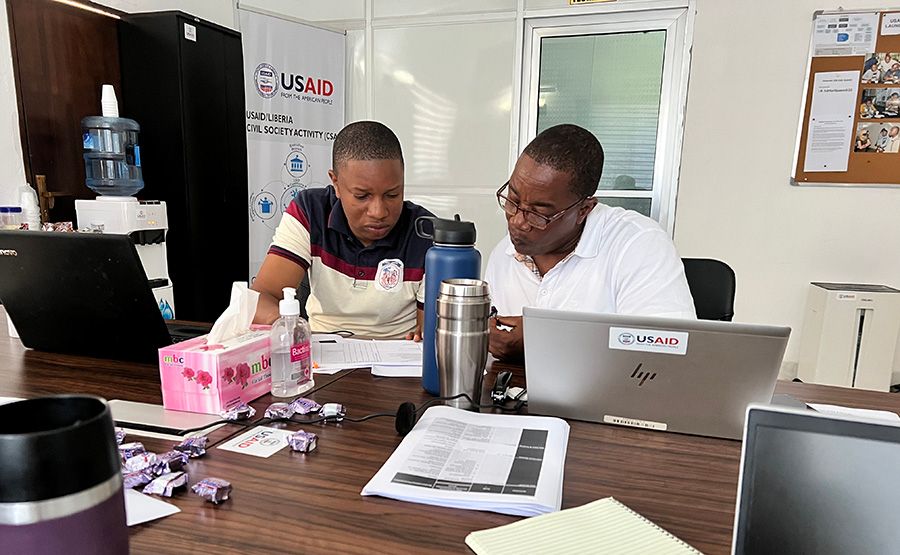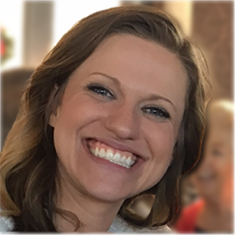Amidst the excitement of the 2024 Paris Olympics, there's a team that often goes unnoticed—the Refugee Olympic Team. Having made its debut at the 2016 Olympics in response to global displacement challenges, this team's presence is particularly poignant now given Europe's largest internal refugee crisis since World War II, sparked by Russia's full-scale invasion of Ukraine. The invasion has forced about one-third of Ukrainians from their homes, with roughly 3.7 million people displaced internally and an additional 5 million seeking refuge abroad.
Global displacement has surged in recent decades, with an estimated 120 million forcibly displaced individuals worldwide, according to the European Union and the United Nations High Commissioner for Refugees (UNHCR). This global humanitarian emergency disrupts lives, strains host-community resources, and worsens socio-economic conditions, causing psychological trauma, lost livelihoods, and barriers to crucial services such as healthcare and education, particularly affecting women and children. Several DAI programs have been working on the refugee issue in Ukraine.
Putting Food on the Table, From Luhansk to Lviv
Entrepreneur Yevhen Molchanov lost his bakery business in Stanytsia, Luhanska. With grant assistance from the Economic Resilience Activity (ERA), funded by the U.S. Agency for International Development (USAID), Molchanov has successfully revitalized his business in Lviv under the new name Shalena Plushka, which means “Crazy Pastry” in Ukrainian.
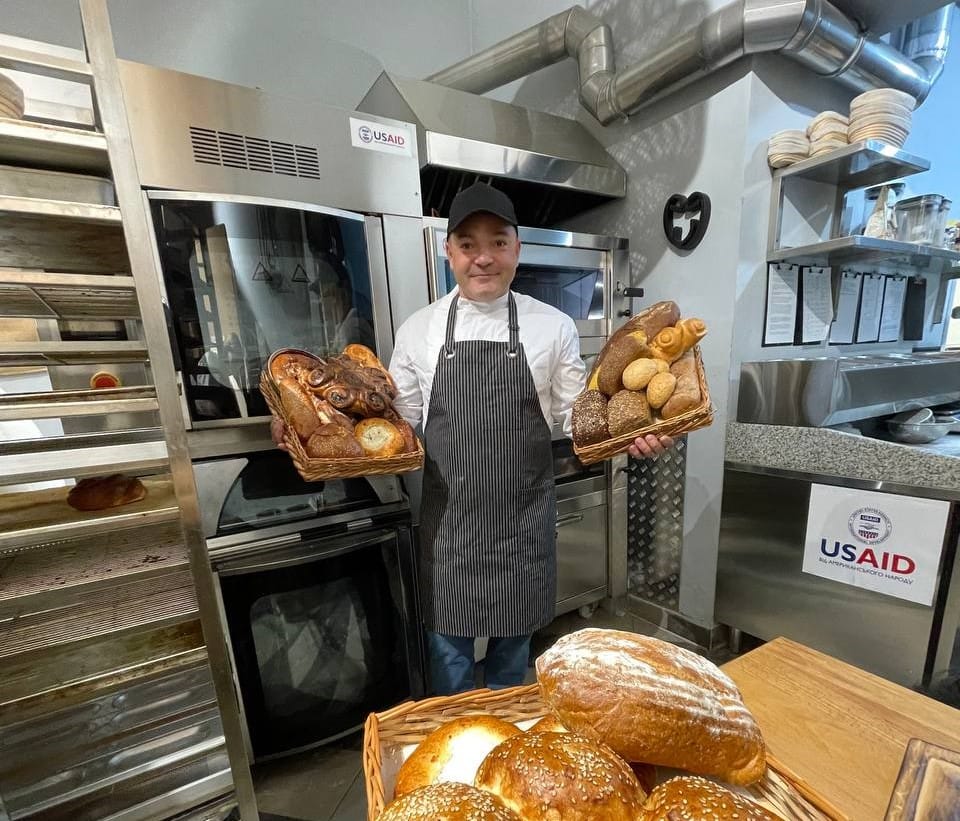
Despite the challenges of entering Lviv’s competitive bakery scene, Molchanov’s perseverance and adaptation of Luhansk recipes have bolstered his business. Supported by the grant, he obtained essential bakery and trade equipment—rotary ovens, refrigeration units, dough processors, packaging tools, and a diesel generator—to restart after fleeing his hometown. "Nothing is impossible in life, and if there is a great desire, then opportunities will find you, even if you go through hell, you must not stop and keep going,” he said.
Making Temporary Shelters Welcoming Homes
Yulia Stepanenko and her family abruptly began their journey in February 2022. Living in Kramatorsk, near the frontline, they heard Russian artillery fire daily. Fearing for their safety, they escaped to the distant Horokhiv community in Volyn Oblast. "We left everything behind a year and a half ago when the war started," Yulia said. "Now, we live in Horokhiv, in a kindergarten, with our two daughters, my husband, and his mother."
The transformation of the kindergarten into a makeshift shelter for displaced families was made possible through support from the USAID HOVERLA activity. "This assistance means everything to us, especially now, when we've had to leave everything we worked for," Yulia said. "Here, we feel safe and settled, almost like home, because we have everything we need."
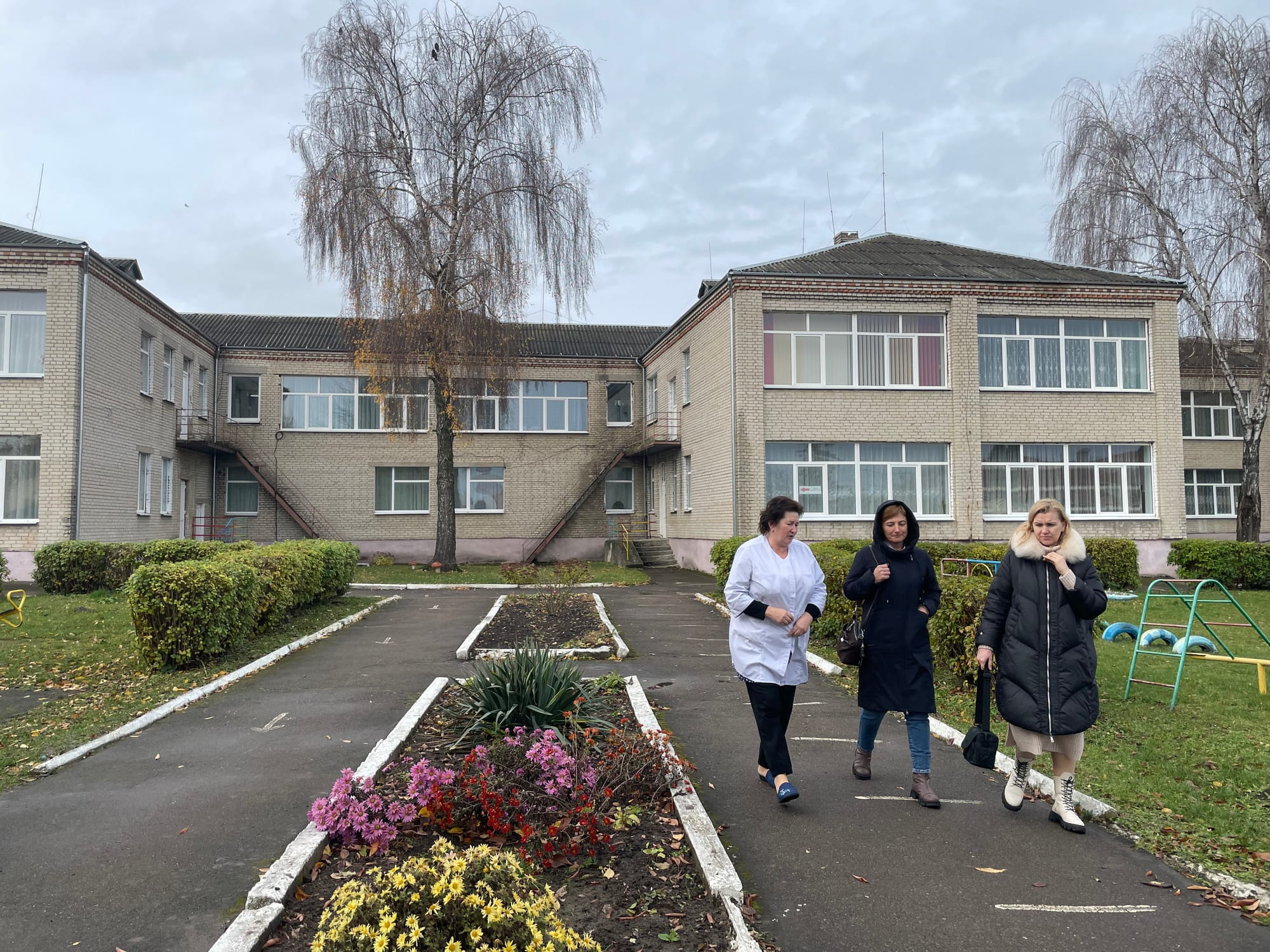
Women Are Disproportionately Affected
More than 85 percent of Ukrainian refugees are women and children. Thanks to an ERA grant, the Women’s Perspective Center (WPC) has been able to provide significant support to internally displaced women in Lviv. From February 2023 to March 2024, for example, WPC provided 670 hours of counseling to 300 displaced women, along with 240 hours of social support and study courses.
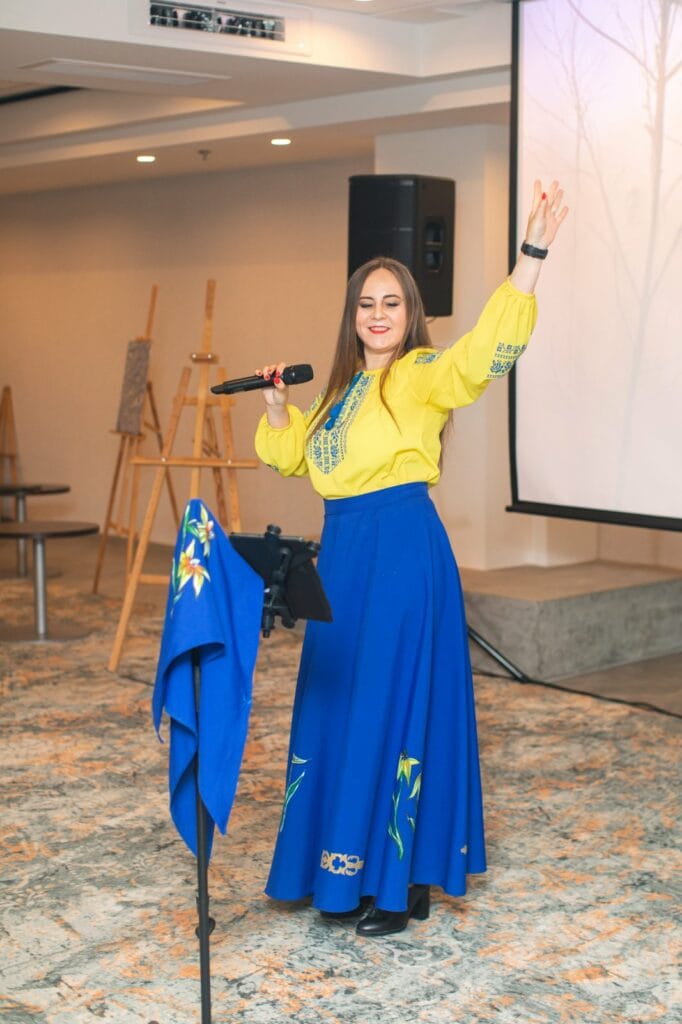
Additionally, WPC conducted 12 classes on women’s health and first aid and organized 14 training sessions for 190 unemployed women. A business camp equipped 45 women with essential job-seeking and startup skills, positioning them closer to economic independence and improving their mental well-being.
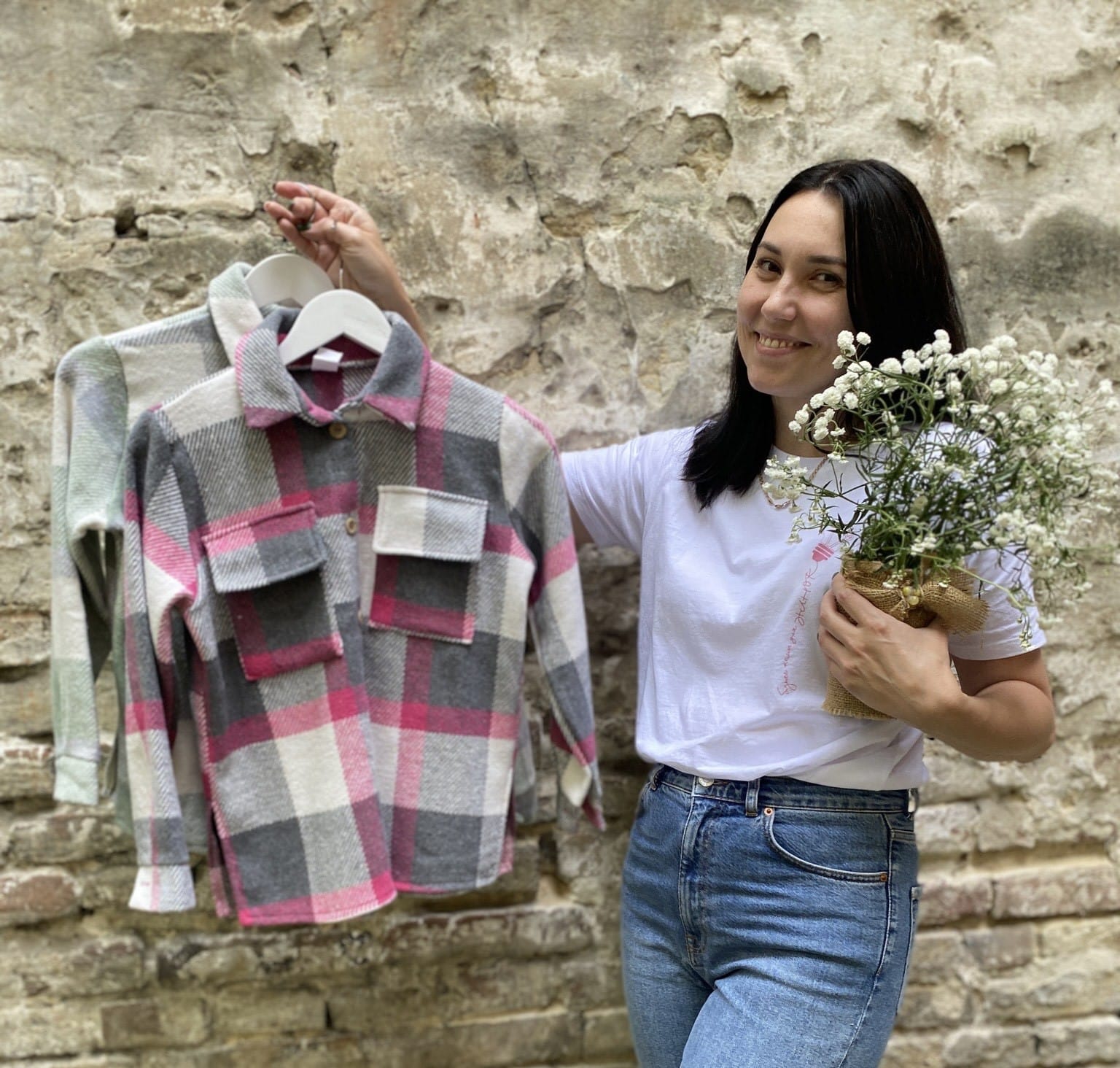
Coming Together Through Music
In Horokhiv, many of the 400 displaced people currently residing there are increasingly looking to lay down longer-term roots in their host community. Following integration meetings organized by the Volyn Institute of Law, with support from USAID HOVERLA, Mayor Viktor Hodyk had the idea of bringing people together through music, an initiative that aims to unite the community, integrate people from unstable regions, and nurture local artistic talent. For example, a new jazz band comprises locals and a displaced person from Luhansk.
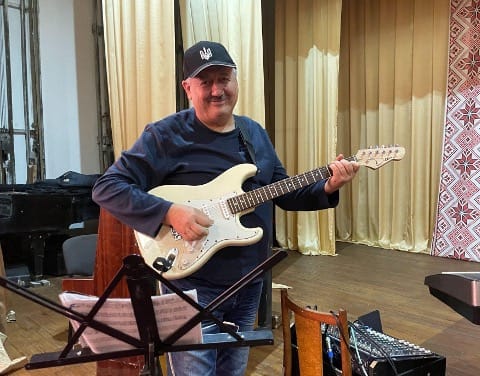
“Joining the band as a guitarist was natural for me, having played during my student years,” said Dmytro Mukhtarov, who found solace in music on arriving in Horokhiv from Rubizhne. “Being part of this creative process and community life, and moving forward despite everything, is crucial for me now.”
The Challenge Ahead
Individual stories are important and, we hope, inspiring. But they represent only a fraction of the larger population of displaced people in Ukraine, let alone worldwide. Ultimately, the best way to support Ukrainian refugees is by helping the Ukrainian government build back its internal capacity to protect and support its citizens. And beyond that, we need to tackle the root causes of displacement, from war and conflict to environmental crises, climate change impacts, and economic drivers.
Several of DAI’s USAID-funded programs in Ukraine are focused on reinforcing the internal capacity of Ukrainian local governments and underpinning the resilience of Ukrainian industry and commerce. Keeping the economy moving and assisting Ukrainian authorities in hosting displaced people in their own country will in turn reduce the strain on neighboring nations, preventing mass outward migration that could overwhelm nearby countries' resources. Sustaining those efforts will require continued international cooperation and support.

